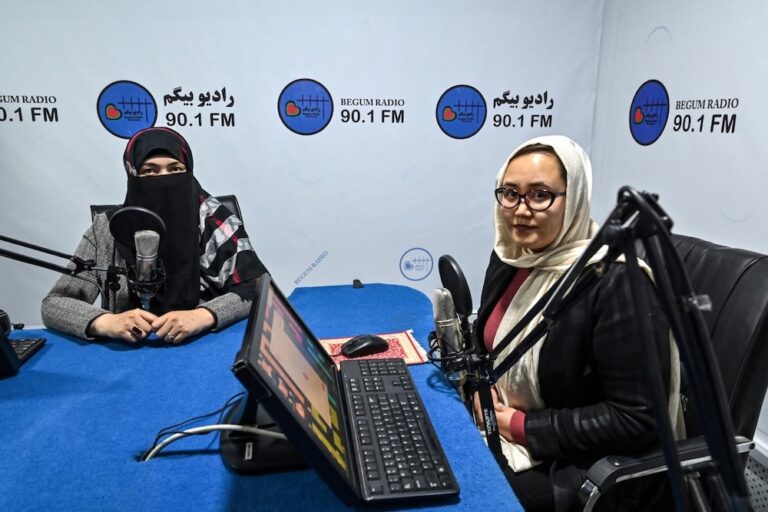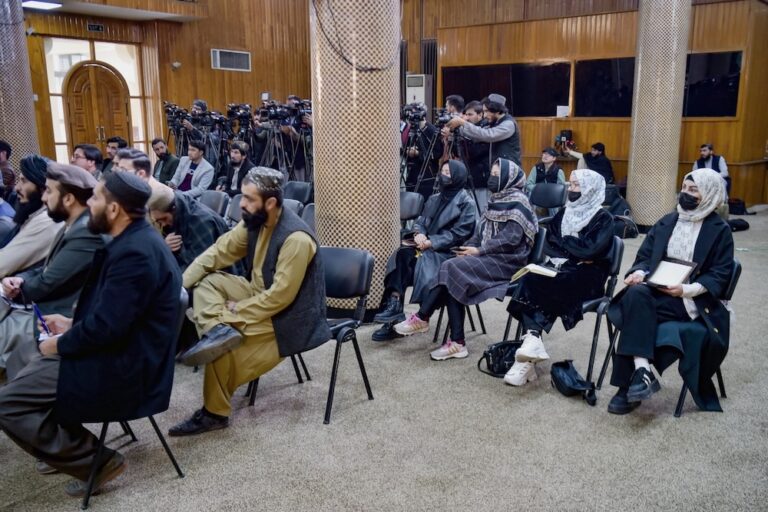(RSF/IFEX) – RSF has called on Information and Culture Minister Sayeed Makhdoom Raheen to explain the closure of Afghanistan’s second most read daily, the state-owned “Arman-e-Mili” (“The National Will”), which recently carried articles criticising President Hamid Karzai’s administration. The move appears to violate the government’s commitments with respect to the independence and development of state […]
(RSF/IFEX) – RSF has called on Information and Culture Minister Sayeed Makhdoom Raheen to explain the closure of Afghanistan’s second most read daily, the state-owned “Arman-e-Mili” (“The National Will”), which recently carried articles criticising President Hamid Karzai’s administration. The move appears to violate the government’s commitments with respect to the independence and development of state media.
“If this a political move aimed at banning any criticism of the government in the state-owned press, we urge you to reverse the decision and to reinstate the journalists in their posts,” RSF said in a letter to the minister.
“Arman-e-Mili”‘s last issue appeared on 11 October 2003, after the government ordered its “administrative closure”. The information and culture minister said the measure was “of a budgetary nature.”
Agence France-Presse quoted the minister as saying at a press conference, “There are currently 265 dailies, weeklies and other publications in Afghanistan. Five of them belong to the government and are subsidised by public funds. They often carry the same articles and the same photos, so we decided to close one of them.”
However, the daily’s editor-in-chief, Mirhaidar Motahar, claimed the closure is linked to the paper’s increasingly independent editorial line. He said “Arman-e-Mili” had often reported on popular discontent with government decisions.
As the newspaper received part of its financing from the Defence Ministry, its closure could also be linked to power struggles within the government. Defence Minister Mohammed Fahim heads a major opposition current within the transition government. As “Arman-e-Mili” very rarely criticised Fahim, President Karzai’s associates may have suspected the paper of being in the pay of the minister.
“Arman-e-Mili” had a circulation of 5,000 copies, one of the largest in Afghanistan. It employed 17 journalists and about 15 other employees.


